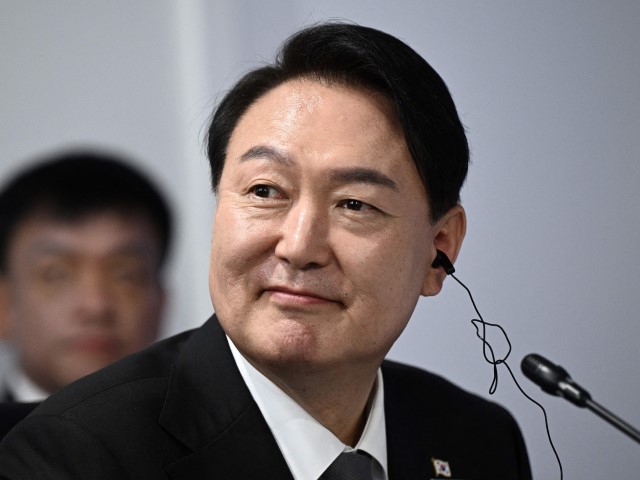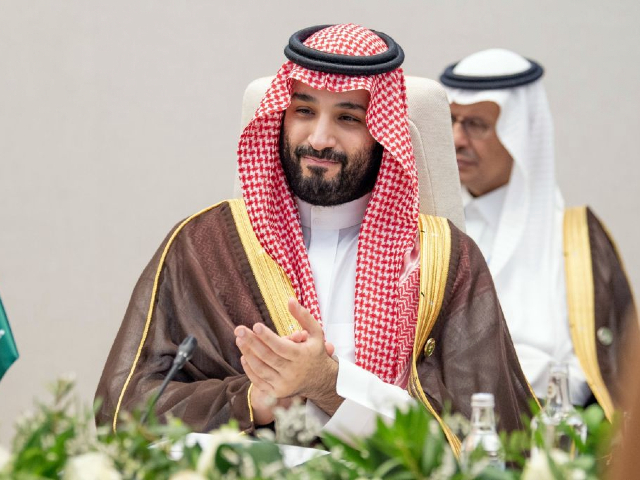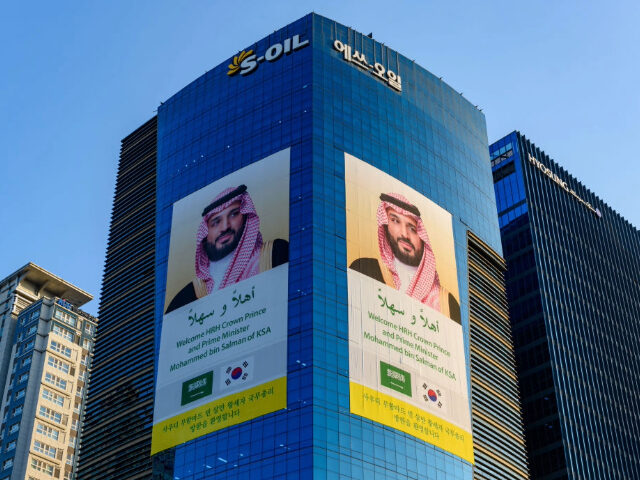The industry publication Energy Intelligence reported on Tuesday that South Korea had significantly increased the amount of crude oil it imported from Saudi Arabia between October and November, the first full month since Korean President Yoon Suk-yeol’s October visit to Riyadh.
The report offers more evidence of increasingly robust ties between Riyadh and Seoul, unlikely partners in a variety of fields, from trade to technology to defense. South Korean companies are finding fertile ground for development in Saudi Arabia under the auspices of Crown Prince Mohammed bin Salman, whose “Vision 2030” initiative requires the construction of brand-new “smart cities” equipped with luxury tourism amenities, high-tech surveillance, and “green” transport.
South Korea has also found in Saudi Arabia a willing partner in defense technology after President Joe Biden halted some offensive weapons sales to Riyadh in 2021, caving to leftist pressure not to aid the country’s military operations against the Shiite jihadist Houthi terror group in Yemen. Reports released as recently as Thursday indicate that Biden may resume those sales soon, but Seoul may have filled much of the void by then.
According to Energy Intelligence, citing South Korea’s Korea National Oil Corp, the country imported 920,000 crude oil barrels per day (bpd) in November, an increase of 149,000 bpd from October. Saudi Arabia is South Korea’s top source of crude oil. In second place is America, which imported 437,000 bpd in November, slightly less than the month before.
South Korea is not a major oil producer but is one of the largest importers and refiners. It has increased its reliance on the Middle East for crude oil under Yoon, decreasing imports from Central Asia and Africa.

South Korean President Yoon Suk-Yeol (BRENDAN SMIALOWSKI/AFP via Getty Images)
The significant boost in Saudi oil followed the signing of dozens of deals in Riyadh in October when Yoon visited and engaged in personal talks with Crown Prince Mohammed bin Salman, the country’s de facto ruler. Yoon has quietly made Saudi Arabia a foreign policy priority for his country, which has traditionally kept to deepening ties with its top ally, America, and making modest inroads with its former imperial ruler, Japan. During his talks with bin Salman, Yoon proclaimed that his country was “Saudi Arabia’s optimal partner in the post-oil era,” a reference to the “Vision 2030” plan, intended to diversify the Saudi economy such that any significant decrease in global oil consumption will not catastrophically harm it. Bin Salman has promised to expand Saudi Arabia’s role in “green” energy initiatives as the United Nations and international climate change alarmists demand an end to the use of fossil fuels.
Mohammed bin Salman similarly praised South Korea in October as a “key partner” in Vision 2030, citing deals not just in energy but infrastructure development and manufacturing.

Prime Minister and Crown Prince of Saudi Arabia Mohammed Bin Salman (Royal Court of Saudi Arabia/Anadolu Agency via Getty Images)
A slightly surprising declaration from the October meeting was a statement from Deputy National Security Adviser Kim Tae-hyo suggesting that Riyadh was interested in equipping itself with Korean defense technology.
“The defense industry is emerging as a blue ocean in our cooperation with Saudi Arabia,” Kim told reporters, according to the South Korean Yonhap news agency. “Large-scale defense industry cooperation discussions are in the final stage, in various areas such as antiaircraft defense systems and firearms.”
“We intend to cooperate so that our weapons systems using our excellent defense industry technologies help strengthen Saudi Arabia’s defense capabilities,” Kim continued, “and this will serve as a strong force for further expanding our achievements in defense industry exports.”
An anonymous Korean official told the Korea Times following the revelation of defense cooperation that Saudi officials are concerned about “threats … near its territory” that South Korean equipment can help protect from. While not specifying the threat, the top entity attacking Saudi Arabia in the region is the Houthi terrorist movement in Yemen, which toppled the legitimate government of the country in 2015 and received generous support from Iran, the world’s premier state sponsor of terrorism.
The Houthis have become a prominent threat to both Saudi Arabia — which it has, for years, bombed with rudimentary missiles — and the world since 2021, when Biden removed them from the list of U.S.-designated Foreign Terrorist Organizations. State Department officials clarified that they did not believe the jihadists had abandoned terrorism but delisted the group in a now-failed attempt to allow more humanitarian aid into Yemen.
The Houthis are overtly genocidal, fighting under the mantra, “Allahu Akbar, Death to America, Death to Israel, Curse on the Jews, Victory to Islam.” Following the October 7 atrocities in Israel by the fellow terrorist organization Hamas, Houthi terrorists launched a “war” against Israel and declared they would block entry into the Red Sea, disrupting global trade and threatening American and international maritime assets. Biden responded to the blockade and subsequent trade chaos by creating “Operation Prosperity Guardian,” a dubious international coalition intended to protect commercial ships in the region. Notably absent from that coalition are Saudi Arabia and Israel.

Houthi forces board the cargo ship Galaxy Leader on November 19, 2023, in the Red Sea off the coast of Yemen after threatening to seize all vessels owned by Israeli companies. (Houthi Media Center via AP)
Outside of defense cooperation, South Korean companies have taken on major projects in “Neom,” a city Mohammed bin Salman has promised to build in the country’s underdeveloped northwest. The Saudi government is billing Neom as a destination city equipped with expansive sports and festival facilities, state-of-the-art tech innovation offices, and premier resort facilities. Neom will also allegedly house “The Line,” an all-green “mega skyscraper” that will allegedly be home to five million people who will not have to leave the building to access any basic necessity. South Korea’s Aju Daily recalled on Wednesday that major Korean corporations such as Samsung and Hyundai have signed deals to build Neom infrastructure, such as green energy sites and transport options.

COMMENTS
Please let us know if you're having issues with commenting.